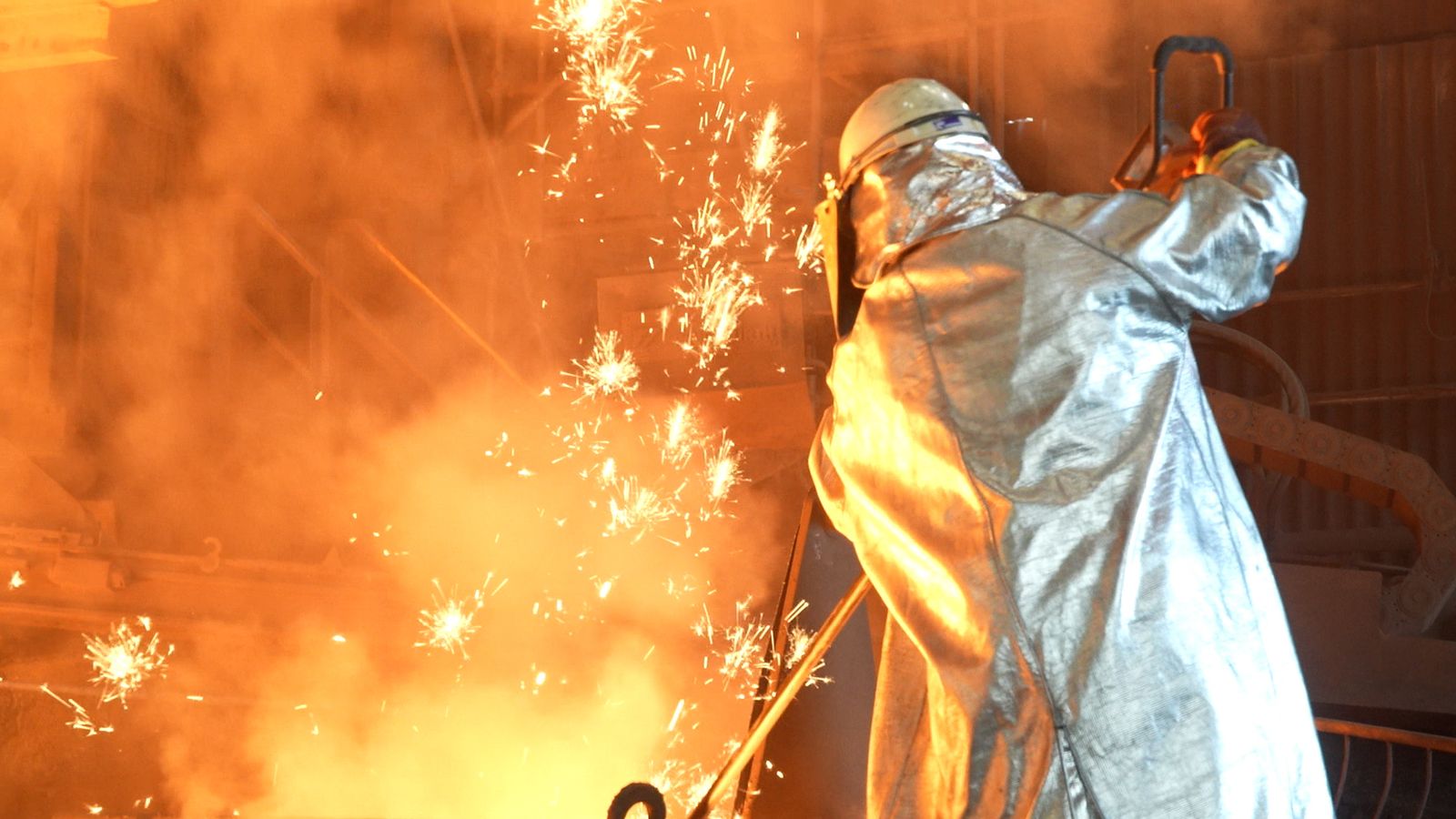Politics
Reynolds set for fresh talks on British Steel rescue deal

The Ongoing Struggle for British Steel: A Fresh Round of Talks
The UK steel industry, once a cornerstone of the country’s economy, continues to face significant challenges as it navigates an uncertain future. This week, Business Secretary Jonathan Reynolds is set to engage in a fresh round of negotiations with Li Huiming, the chairman of Jingye Group, the Chinese company that acquired British Steel in 2020. These talks are the latest development in a protracted effort to secure a state bailout for the Scunthorpe-based steelmaker, which has been struggling to stay afloat amid rising costs and global competition. The discussions, which have been ongoing for over two years, highlight the fragile state of the industry and the government’s attempts to prevent mass job losses and safeguard the nation’s industrial base.
Jingye Group’s Push for Financial Support
Jingye Group, which purchased British Steel in 2020, is seeking substantial financial support from the UK government to modernize its operations. Specifically, the company is requesting hundreds of millions of pounds to electrify its steelmaking processes at the Scunthorpe plant, a move that would not only reduce its carbon footprint but also make the facility more competitive on the global stage. This request follows a similar £500 million grant awarded to Tata Steel, the owner of the Port Talbot site in South Wales, last autumn. Jingye’s bid for funding underscores the industry’s desperate need for investment to remain viable in an increasingly challenging environment.
A Broader Strategy to Support the Steel Industry
In a bid to address the systemic issues plaguing the UK steel sector, Jonathan Reynolds recently approved a consultation on plans to provide up to £2.5 billion in state financial support. The proposed measures aim to tackle some of the industry’s most pressing challenges, including high electricity costs and the need to improve the UK’s scrap metal processing capabilities. These efforts are part of a broader strategy to ensure the long-term sustainability of the steel industry, which is not only crucial for the economy but also for the thousands of workers employed directly and indirectly by companies like British Steel.
Optimism Amid Uncertainty
Despite the daunting challenges, Jonathan Reynolds has expressed confidence in the future of the UK steel industry under the current government. Speaking on Sunday, he emphasized the sector’s importance and the government’s commitment to supporting it. However, the optimism is tempered by the broader uncertainties facing steel producers, particularly the impact of US President Donald Trump’s tariffs on overseas steel companies. These tariffs have created a challenging trade environment, further complicating the industry’s struggle to compete on the global stage.
No Quick Fixes in Sight
While this week’s talks between Jonathan Reynolds and Li Huiming are a critical step in the ongoing negotiations, Whitehall sources have indicated that no formal decisions are expected to be made during the meeting. A spokesperson for the Department for Business and Trade declined to comment on the discussions, signaling that the process is likely to remain opaque for the time being. This lack of clarity leaves many in the industry and beyond wondering when—or if—a resolution will be reached, and what the consequences might be for the thousands of workers and families who depend on British Steel.
The Road Ahead for British Steel
As the UK steel industry continues to navigate its uncertain future, the outcome of the talks between Jonathan Reynolds and Jingye Group’s leadership will be closely watched. The potential state bailout and the broader financial support package represent a lifeline for an industry that is not only economically significant but also deeply intertwined with the nation’s history and identity. However, the challenges ahead are significant, and it remains to be seen whether the government’s efforts will be enough to secure the long-term future of British Steel and the steel industry as a whole. For now, the wait continues for the workers, communities, and stakeholders who are holding their breath as the fate of this iconic industry hangs in the balance.


















